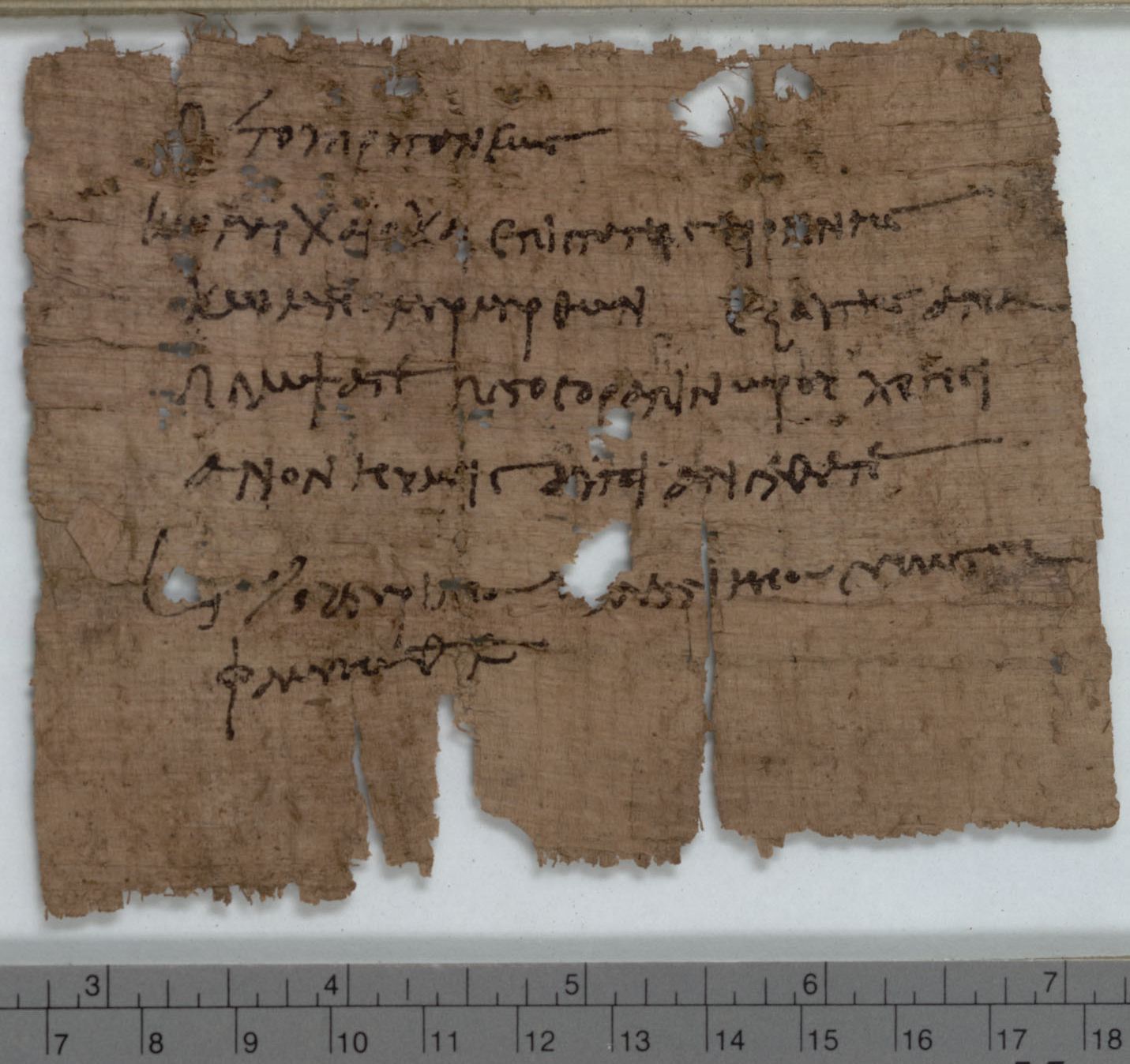
 |
Freethought & Rationalism ArchiveThe archives are read only. |
|
|||||||
|
|
Thread Tools | Search this Thread |
|
|
#91 | |||
|
Regular Member
Join Date: Jun 2008
Location: Australia
Posts: 412
|
Quote:
|
|||
|
|
|
|
#92 | |||
|
Contributor
Join Date: Mar 2002
Location: nowhere
Posts: 15,747
|
Quote:
[T2="w=90%;b=0;p=5;s=0;bdr=1,solid,#000000"]Let's see what he can do with this textThis is a securely dated text that mentions a christian in 256 from Egypt, the third year of the reign of the Roman emperor Valerius and his son Gallienus. Another example why the mountainman blunder theory is dead in the water. You can flap all you want, but when it's dead, it is dead, and all the flapping you want will not breathe life back into it. ETA: Maybe, it'll be, "well, it can't be 'christian' because it's spelled wrong." :constern01: spin |
|||
|
|
|
|
#93 | |||
|
Veteran Member
Join Date: Sep 2003
Location: On the path of knowledge
Posts: 8,889
|
Quote:
Quote:
 POxy_3035: is only one. POxy_3035: is only one.According to information recently supplied in this Forum by none other than our esteemed Greek scholar Stephan Huller; Quote:
Wereas the many existent Greek forms of χρησιανόν may be employed serve to inform the meaning of the title χρισιανόν 'Christian', the title 'Christian' did not precede or inform the various forms of the preexisting Greek term χρησιανόν. Hence it is improper to simply swap the one, a definite title, for the other, a generic appellative, claiming that the informing 'earlier' term is simply a variant spelling of the proper title 'Christian'. The warrant was for the arrest of one "Petosarapin of Horus a good man". A common appellative, with nothing of the latter evolved title 'Christian', or of that evolved Christian religion being involved. Substituting 'Christian' within this context, is not only an imposition but also an unnecessary anachronism. |
|||
|
|
|
|
#94 | |||
|
Contributor
Join Date: Mar 2002
Location: nowhere
Posts: 15,747
|
Quote:
 If you look at an image of the document, the only thing confusing about the word you are trying to examine is that there is a ligature from the top of the iota to the sigma. Once noted we have a simple χριστιανον. spin |
|||
|
|
|
|
#95 |
|
Veteran Member
Join Date: Jun 2010
Location: seattle, wa
Posts: 9,337
|
... and where does Shesh get 'a good man' from the form χρησιανόν? Do these people know anything?
|
|
|
|
|
#96 | |
|
Veteran Member
Join Date: Jul 2008
Location: Location: eastern North America
Posts: 1,468
|
Quote:
1. Do you intend to explain that the third symbol, following the obscure second symbol, "rho", is iota, rather than eta (or epsilon?)? 2. To my eye, there exists a smudge of ink or dirt, above that third symbol, for reference. The symbol beneath that smudge, to my untrained brain, is eta. 3. The fourth symbol, which is supposed to represent sigma (?) and iota, is not so easy to decipher. 4. In the next line I observe alpha nu omicron nu. I see no evidence of tau. chresianon avi |
|
|
|
|
|
#97 |
|
Contributor
Join Date: Mar 2002
Location: nowhere
Posts: 15,747
|
|
|
|
|
|
#98 | |||
|
Contributor
Join Date: Mar 2002
Location: nowhere
Posts: 15,747
|
Quote:
The rho seems to be deformed. They usually have the long downstroke, but there may be a conventional digraph chi rho. Quote:
As for the sigma tau, look at line 2, επισταταις. (Last three letters -αις are not there, but editorially reconstructed.) We end up with: χριστι/ανον spin |
|||
|
|
|
|
#99 |
|
Contributor
Join Date: Mar 2002
Location: nowhere
Posts: 15,747
|
Incidentally, Shesh, while even the Codex Sinaiticus uses the form, who besides christians ever got called chrestians?
spin |
|
|
|
|
#100 |
|
Veteran Member
Join Date: Sep 2003
Location: On the path of knowledge
Posts: 8,889
|
The point I was making is that the title 'Christian' is derivative, of the Greek language,
it did not arise in a vacuum and takes it meaning form other, preexisting forms of the Greek. While you may choose to interpret the word in POxy_3035 as being the title 'Christian', the actual spelling appearing there does not correspond. spin was already aware that it was "spelled wrong" otherwise he would not have bothered appending his ETA "well, it can't be 'christian' because it's spelled wrong." |
|
|
| Thread Tools | Search this Thread |
|